Gaslight
Lantern Slides from the Nineteenth Century
JOACHIM KALKA
Translated from the German by Isabel Fargo Cole
 New York Review Books New York
New York Review Books New York
J OACHIM K ALKA is an essayist, literary critic, and translator of authors such as Martin Amis, Angela Carter, G. K. Chesterton, Nathaniel Hawthorne, Christopher Isherwood, and Gilbert Sorrentino. He lives in Leipzig, Germany.
I SABEL F ARGO C OLE is a writer and a translator of such authors as Annemarie Schwarzenbach, Franz Fhmann, Wolfgang Hilbig, and Klaus Hoffer. She lives in Berlin, Germany.
Translators Note
In Gaslight Joachim Kalka quotes from many writers in many languages, and in translating the book from German I have relied on the work of other translators, credited below. Any translation not otherwise credited is my own.
I. F. C.
Theodor W. Adorno, Alban Berg: Master of the Smallest Link, translated by Juliane Brand and Christopher Hailey. Cleste Albaret, Monsieur Proust, translated by Barbara Bray. Honor de Balzac, The Ball at Sceaux, translated by Clara Bell. Honor de Balzac, Father Goriot, translated by Ellen Marriage. Honor de Balzac, Letters to Madame Hanska, born Countess Rzewuska, afterwards Madame Honor de Balzac, 18331846, translated by Katharine Prescott Wormeley. Honor de Balzac, Rise and Fall of Csar Birotteau, translated by Katharine Prescott Wormeley. Honor de Balzac, A Woman of Thirty, translated by Ellen Marriage. Walter Benjamin, One-Way Street and Other Writings, translated by Edmund Jephcott and Kingsley Shorter. Ernst Bloch, Traces, translated by Anthony A. Nassar. Bertolt Brecht, The Threepenny Opera, translated by Ralph Manheim and John Willet. Fyodor Dostoevsky, Demons: A Novel in Three Parts, translated by Richard Pevear and Larissa Volokhonsky. Fyodor Dostoevsky, The Notebooks for The Possessed, translated by Victor Terras, edited by Edward Wasiolek. Friedrich Engels to Margaret Harkness, April 1888, e-publication, https://www.marxists.org/archive/marx/works/1888/letters/88_04_15.htm. Gustave Flaubert, Early Writings, translated by Robert Griffin. Gustave Flaubert, Madame Bovary, translated by Eleanor Marx-Aveling. Gustave Flaubert, November: Fragments in a Nondescript Style, translated by Andrew Brown. Theodor Fontane, The Bridge by the Tay, in A Harvest of German Verse, translated and edited by Margarete Mnsterberg. Johann Wolfgang von Goethe, Conversations of Goethe with Eckermann and Soret, translated by John Oxenford. Johann Wolfgang von Goethe, Maxims and Reflections, translated by Elisabeth Stopp, edited by Peter Hutchison. Johann Wolfgang von Goethe, Miscellaneous Travels of J.W. Goethe, edited by L. Dora Schmitz. Gerhart Hauptmann, The Dramatic Works of Gerhart Hauptmann, translated and edited by Ludwig Lewisohn. Theodor Herzl, The Complete Diaries of Theodor Herzl, vol. 1, edited by Raphael Patai, translated by Harry Zohn. Franz Kafka, A Country Doctor, translated by Willa and Edwin Muir. Franz Kafka, Diaries, 19101923, translated by Joseph Kresh, Martin Greenberg, and Hannah Arendt. Franz Kafka, The Metamorphosis, translated by Susan Bernofsky, edited by Mark M. Anderson. Franz Kafka, The Trial, translated by Breon Mitchell. Count Harry Kessler, Journey to the Abyss: The Diaries of Count Harry Kessler, 18801918, translated and edited by Laird M. Easton. Sren Kierkegaard, Kierkegaards Writings, XXIII: The Moment and Late Writings, translated and edited by Howard V. Hong and Edna H. Hong. Karl Kraus, The Last Days of Mankind: A Tragedy in Five Acts, translated by Patrick Healy. Leonardo da Vinci, The Notebooks of Leonardo Da Vinci, translated by R. C. Bell and Edward John Poynter, edited by Jean Paul Richter, eBook, http://www.sacred-texts.com/aor/dv/index.htm. Petronius, The Satyricon, translated by William Arrowsmith. Marcel Proust, In Search of Lost Time, translated by C. K. Scott Moncrieff and Terence Kilmartin, revised by D. J. Enright. Rainer Maria Rilke, Sonnets to Orpheus, translated by Stephen Mitchell. Duc de Saint-Simon, The Memoirs of Louis XIV, vol. 1, translated by Bayle St. John. Friedrich Schiller, The Ghost-Seer; or Apparitionist, and TheSport of Destiny, in Complete Works of Friedrich Schiller, Volume 3. Friedrich Schiller, The Robbers: A Tragedy, in The Works of Frederick Schiller: Early Dramas and Romances, translated and edited by Henry G. Bohn. Fritz Strich, Goethe and World Literature, translated by C. A. M. Sym. Snorri Sturluson, Gylfaginning, in The Younger Edda, translated by Rasmus Bjrn Anderson. Jacques Tardi, The Arctic Marauder, translated by Kim Thompson. Ivan Sergeevich Turgenev, Fathers and Sons, translated by Eugene Schuyler. Alfred de Vigny, Servitude and Grandeur of Arms, translated by Roger Gard. Richard Wagner, Gtterdmmerung, translated by Frederick Jameson. Richard Wagner, Opera and Drama, translated by William Ashton Ellis. Richard Wagner, The Valkyrie, translated by Frederick Jameson.
In the nineteenth century, Girtanner assures us, in the nineteenth century well be able to make gold; and the nineteenth century shall soon commence, thats no mere conjecture now, is it? With laudable confidence and an interesting sort of elation the worthy man says: Every chemist, every artist shall make gold; pots and pans shall be of silver and gold.Now all artists shall happily resolve to starve for the insignificant remainder of the eighteenth century....
F RIEDRICH S CHLEGEL , On Incomprehensibility, Athenum, 1800
The writer of this preface has several times been accused in print of sneering at the nineteenth century.... No one of any intelligence at all who remembers it, though it were only the golden glow and hush that fell upon the world in the few years that preceded the end of Queen Victorias reign, could treat it so.
O SBERT S ITWELL , Sober Truth, 1930
T HERESE : A person like that, you ought to take him and toss him right out of the nineteenth century. (Exit through the side door)
J OHANN N ESTROY , Neither Laurel Tree nor Beggars Staff, 1833 (Act 1, Scene 10)
Preface
W E HAVE a certain custom in our dealings with history, strange but hard to shedwe assign decades and centuries a hazy face, a demeanor, we dress them in a certain costume, speaking of the 1920s and the nineteenth century as though they were individuals. For a decade such as the 1950s, especially given its striking product design, one could indeed construct a certain physiognomy, but many of these decimal-based labels remain persistently vacuous. The term nineteenth century, on the other hand, seems unusually loaded.
What difference does it make that the nineteenth century, from our perspective, has just taken one step back in the long line of past saecula? It is no longer our predecessor century; it is, as it were, the past perfect of our present consciousness. Or is it the present perfect, after a century of being the imperfect? Our historical subconscious harbors a complex sequence of tenses. Were proud of our present, we want to be contemporary; in the United States you hear the youthfully snarky comment Thats so twentieth century. But doesnt it thrill us when the abyss of the past gapes? When a prodigious poem about the nineteenth centurys close, beginning with the evocation of a silent, smoldering summer evening, empty train platforms, distant factory noise, and searing memories of the Franco-Prussian War and the Commune, builds to the lines:



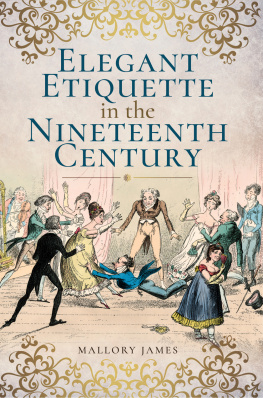
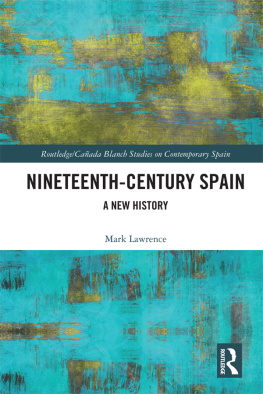
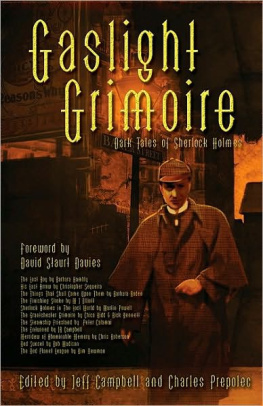
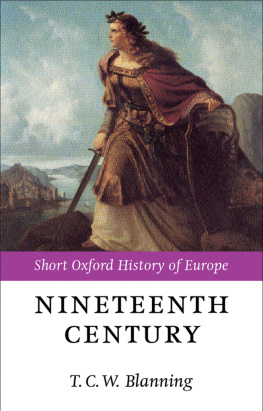
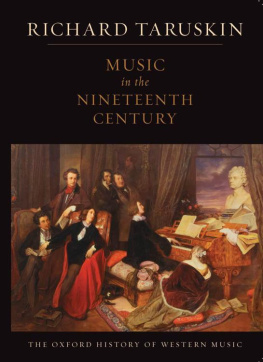
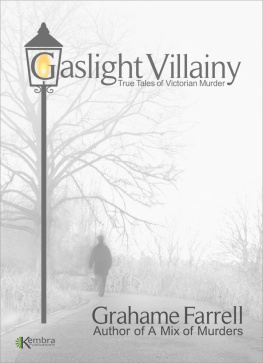

 New York Review Books New York
New York Review Books New York